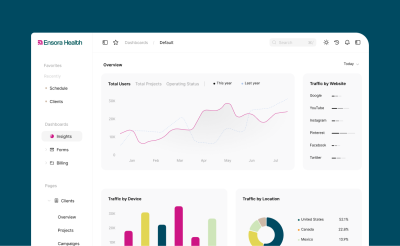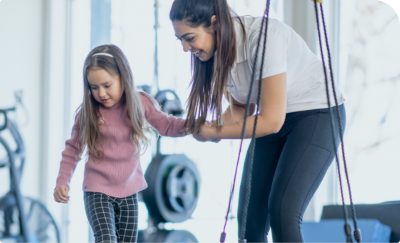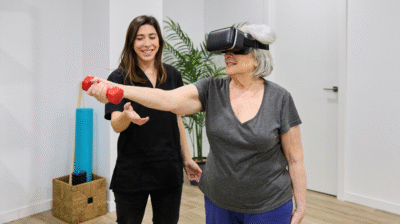Group therapy activities for kids

Group therapy is a unique experience and opportunity for individuals to grow and connect with others who share similar life experiences, challenges, fears, barriers, and more can often feel isolating. While individual therapy is a fantastic resource for children facing mental and behavioral health challenges, there is something to be said about how children learn from one another. As kids, we spend a large amount of time learning from our peers and using them as a resource for our growth and development. From learning how to speak and socialize to learning how to be a good friend and support those we care about, the lessons we learn from people we share experiences with are precious.
Growing and adapting in those situations can be challenging for children who have unique experiences like anxiety, mood disorders, intense emotions, trauma, or sudden life changes. Things like this are hard for people of all ages. Lessons like how to seek out support, effectively express one’s feelings, and how to communicate effectively are not inherent, meaning they must be learned. These challenges are even more difficult for children who have yet to have the experiences that equip them with tools to face mental health challenges.
Group therapy for kids connects children with peers who can understand, empathize, and connect with the challenges they have faced in life, reducing feelings of isolation or loneliness. It gives children a resource to better understand their emotions and learn healthy ways to cope with them, express them, and grow.
This setting might look different for children than it does for adults. Because kids still need to learn how to communicate and effectively express themselves, sessions are centered on activities that engage their minds and teach them valuable skills. Group activities for kids might include lessons on how to value oneself, how to tell someone how you feel, and how to support others. Keep reading to learn about several excellent examples of group therapy activities for children.
6 Group therapy activities for kids
Me too web
This group counseling activity is perfect for kids who need to get to know one another. In this activity, therapists have a ball of yarn in hand. They start by stating a fact about themselves that they think people should know. Depending on the group, this fact can be as simple as your favorite color and as complex as something you are afraid of. The group would then respond with “me too” if that also applies to them. For example, if the therapist starts by saying, “my favorite season is summer,” then several group members might say, “me too!”
Next, the therapist tosses the ball of yarn to one of the kids who responded while keeping hold of the end of the string. The person who caught the thread would then state a fact about themselves and repeat the process. This is a fantastic game to help kids interactively learn more about one another to connect over shared details. This can be a great ice breaker game that is repeated in future sessions to dig deeper into shared experiences.
Worries in a hat
Expressing challenging emotions can be tricky, even for adults. Learning how to express feelings can help children know when to ask for help, how to communicate with those they love, and set them up for strong emotional intelligence as they grow up. Worries in a hat is an activity that helps kids express emotions by putting words to them. Therapists start by passing out slips of paper and pencils. Kids then write down one thing that worries them. This is usually related to the shared experience or challenge they face in their lives. Kids should not write their names on these pieces of paper. They then put their paper into a hat (or bowl). The therapist reads each worry aloud to the group, keeping each student anonymous.
This is a great activity because it usually results in other kids in the room saying they feel the same way. This can have children leaving the group therapy session feeling much less alone than they might have when they walked in.
Guess who
This fun group activity for children is simple and usually highly engaging. Therapists should have each child write down something that they feel makes them unique or special. Kids should not write their names on this paper. They then put that paper into a bowl. Therapists then read allowed these facts one at a time, having the group guess which student it applies to.
This group activity is perfect for encouraging self-reflection and self-esteem. They can talk and point out things that make them feel good about themselves or that they are proud of and feel happy about who they are as individuals.
Trace with love
For this group therapy activity for students, therapists should bring in large paper and some crayons. Pair kids up in groups, having them take laying down and tracing their outlines. The other team members then write inside the outline things they admire, like, or think are cool about that student. This is an excellent exercise for teaching children how to be kind to others and lift them while also teaching them how to communicate how they feel. This is also a self-esteem-building activity for the person whose outline is being written in.
Emotions charade
This interactive activity helps children identify and express emotions nonverbally. Write different feelings on cards (happy, sad, angry, scared, excited, etc.). Each child takes turns selecting a card and acting out the emotion while others guess what they’re feeling. This helps kids recognize emotional expressions in themselves and others while making emotional literacy fun.
Feelings bingo
Feelings bingo helps children identify and express different emotions. First, create (or purchase) bingo cards with different emotions written in each square (happy, sad, excited, worried, etc.). Instead of calling out numbers, call out scenarios or situations that might evoke specific emotions. Kids mark the emotion they associate with the scenario on their bingo card. The first child to get bingo wins, but the focus is more on discussing the emotions rather than competition.
Group therapy is a fantastic opportunity for children to connect with peers who understand their unique life experiences while teaching students valuable life skills that support their futures. TheraNest includes various tools to simplify group therapy, including group note templates and easy scheduling. Find out if TheraNest is right for you by trying it for free, no strings attached.
To learn more or schedule a free trial, click here.






